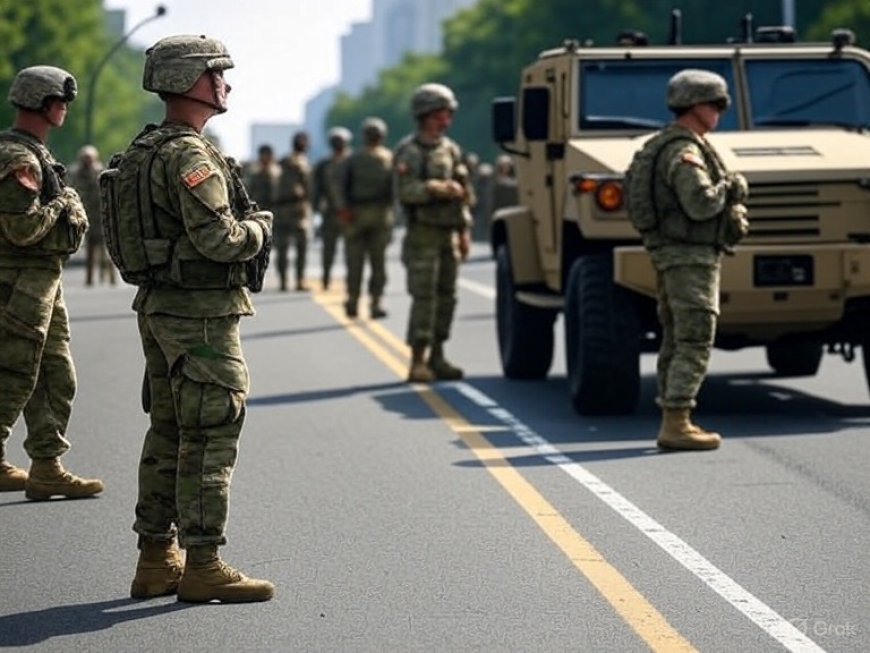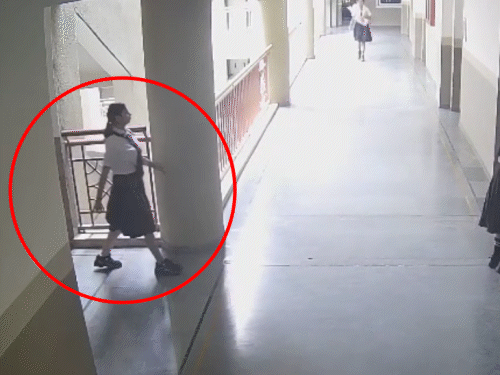National Guard Deployment in D.C. Extends Into Second Week Amid Political Tensions
The deployment of additional National Guard troops in Washington, D.C., enters its second week on August 18, 2025, amid Democratic criticism and no clear exit strategy from the Trump administration.

Washington, D.C. — Monday, August 18, 2025 — The deployment of additional National Guard troops in Washington, D.C., has entered its second week, drawing criticism from Democratic lawmakers who question the necessity and the lack of a defined exit strategy from the Trump administration.
The expanded troop presence, which began on Monday, August 11, 2025, is part of ongoing security measures in the nation’s capital, but its extended duration has raised concerns about civil liberties, cost, and the precedent it may set for federal involvement in domestic law enforcement.
Details of the Deployment
According to officials from the U.S. National Guard Bureau, approximately 2,500 additional troops have been mobilized from states including West Virginia, South Carolina, and Ohio. The deployment is intended to support local law enforcement and maintain public order during heightened security alerts in Washington, D.C.
Guard units have been assigned to high-traffic areas, including near federal buildings, transportation hubs, and landmarks, and are providing logistical and crowd-control support rather than direct law enforcement.
Political Criticism
Democratic leaders have voiced strong objections to the continued presence of National Guard troops in the city. Representative Elena Martinez (D-DC) stated on Monday, August 18, 2025: “The prolonged deployment raises serious questions about accountability and the potential militarization of our capital. Citizens deserve transparency regarding how long these troops will remain and under what authority.”
Critics argue that the lack of a clear withdrawal timeline from the Trump administration contributes to uncertainty and public unease. They also note the financial implications, with extended deployments costing millions in federal and state resources.
Trump Administration Response
White House officials have defended the decision, citing ongoing security threats and emphasizing that the National Guard is deployed to ensure public safety. A spokesperson stated that troop levels will be assessed daily and adjusted according to evolving security needs, though no specific exit strategy has been publicly disclosed.
President Trump, speaking briefly at a press briefing on Monday, August 18, 2025, reiterated that the deployment is temporary and precautionary, emphasizing the importance of safeguarding federal institutions.
Public and Media Reactions
Local residents and advocacy groups have expressed mixed reactions. While some appreciate the heightened security measures, others argue that the prolonged military presence in a civilian city may be intimidating and unnecessary, particularly as protests and political rallies continue to be largely peaceful.
Media coverage has highlighted the unusual duration of the deployment and the political tension surrounding the decision. Analysts note that extended military presence in a domestic urban area is rare and often sparks debates about federal authority versus local governance.
Historical and Legal Context
The deployment echoes past instances where the National Guard was mobilized to support law enforcement during emergencies, such as natural disasters or civil unrest. According to Congressional Research Service, extended Guard deployments in civilian areas are legally permissible under federal statutes, but they are typically accompanied by a clear operational timeline to avoid concerns about overreach.
Experts caution that without defined withdrawal plans, extended troop presence can lead to political friction, public anxiety, and increased scrutiny from watchdog organizations.
Looking Ahead
As the deployment enters its second week, both lawmakers and the public are awaiting more information from the Trump administration regarding duration, mission scope, and exit strategy. Observers predict that the ongoing presence of National Guard troops in Washington, D.C., will continue to be a contentious issue in political discourse and media coverage leading up to the 2026 midterm elections.
What's Your Reaction?
 Like
0
Like
0
 Dislike
0
Dislike
0
 Love
0
Love
0
 Funny
0
Funny
0
 Angry
0
Angry
0
 Sad
0
Sad
0
 Wow
0
Wow
0







































































